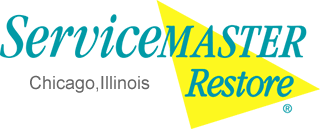How Do I Know if I Need Mold Remediation?
How can you tell if you have mold? And how do you know if you can get rid of mold yourself versus hiring a professional? When dealing with mold, it’s important to understand when and where it can pop up and your role once it is present in your home.
What is Mold?
Mold isn't a substance that just appears out of nowhere — it's everywhere, present as microscopic particles floating in the air inside and outside. Mold becomes a problem in your home when the spores collect and form colonies. Not all mold is bad — like the mold that typically accumulates in the grout of your shower — but other forms of can form health-threatening mycotoxins.
Signs You May Have Mold
When dealing with mold, you can't be too careful. Rooms that are naturally high in moisture and humidity — like a basement or bathroom — will be more susceptible to the presence of mold. Keep an eye out for the following signs of mold:
-
- Discoloration: If given enough time, mold will start to reveal itself in discoloration. Look for spots of black, grays or pastel colors. Some types of molds look like fuzz or dust, so don’t discount anything that looks out of the ordinary.
- Musty Smell: Some types of molds develop a smell as they are colonizing. If you notice a consistent musty, wet smell in a room or area, or even a smell that seems to be coming and going, investigate the source. But don't just rely on smell — look for the physical signs like the color and appearance.
- Health Effects: Take note of any areas where you start to experience adverse health effects. If you feel unwell in a space then feel back to normal outside of that area, then take a closer look for mold. Look for signs of allergies, congestion, headaches, fatigue or other symptoms that seem out of the ordinary — these could be signs of poor air quality.
Mold Removal versus Mold Remediation
So, what is the difference between mold removal and mold remediation — both terms seem to be interchangeable when one is discussing mold. However, mold removal is removing a symptom of the problem while mold remediation is removing the problem.
Mold can never fully be extracted from a location because the mold spores are constantly in the air. When dealing with mold, the objective is to remove the excess build-up where the spores have colonized into the noticeable grouping and prevent the mold from recurring.
Mold removal includes removing the material with the mold buildup and any nearby objects and materials that may also be affected with mold, even if it isn’t noticeable to the eye. Mold remediation is the process of both removing all materials possibly affected by mold and treating the remaining surfaces so the mold cannot grow back. A special mold-removal solution is used to remove the mold from surfaces and the air with special air scrubbers.
How Do You Know if You Need Mold Remediation?
If you have signs of a mold problem in your home, consult a professional for mold remediation immediately. Most companies will do both removal and remediation. Mold is dangerous to your home's health and your families health. If you choose to try and remove the mold yourself, there is the possibility that the mold spores will travel through the air and begin growing elsewhere. It is best to have the peace of mind that not only is the mold gone, but you've taken the proper steps so it won't return.
The Best and Most Efficient Mold Remediation
If you’re a resident of Chicago, IL and needing mold removal or remediation services, trust the professionals at ServiceMaster of Lincoln Park. Homeowners have trusted us to remove their mold for over 50 years. We pride ourselves on doing your job right the first time so your life can return to normal. To learn more about our services or to schedule an appointment, give us a call today at 773-346-6767 or fill out our online scheduling form.


Comments are closed.